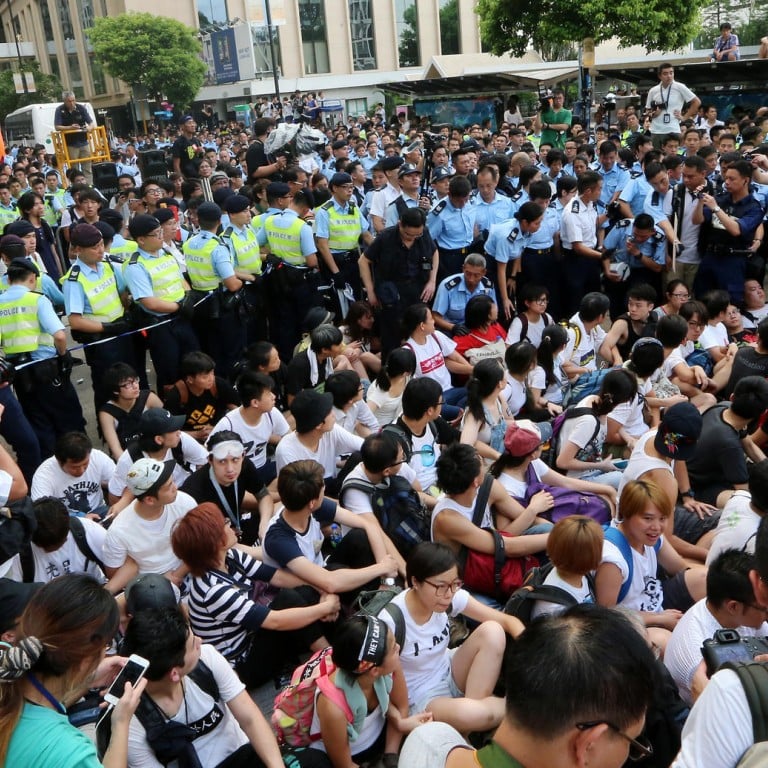
Occupy Central leaders keeping plans under wraps to avoid conspiracy charges
One legal expert says the moment concrete details are announced, they could be prosecuted
Occupy Central leaders could face conspiracy charges if and when they announce detailed plans for the sit-in they have threatened, one criminal law expert says.
The word of caution from Simon Young Ngai-man, a Hong Kong University law professor, comes after police toughened their stance against pro-democracy protesters over the past week. That included the mass arrest of 511 people who took part in a sit-in on Chater Road after the July 1 march.
Occupy co-founder Benny Tai Yiu-ting said his movement's plan to paralyse Hong Kong's business hub would only go ahead if the government's proposal for the 2017 chief executive election did not meet international standards for universal suffrage and gain public approval.
But Young said Tai and his followers could be arrested for conspiracy even before Occupy took any action.
Once leaders announce concrete details regarding the time, location, and manner of the demonstration, they will open themselves up to a charge of conspiracy, said Young, who teaches criminal law and rights in the criminal process.
Tai shares the concern. "This is the reason we have not announced any details on the final action plan," he told the
Tai's movement calling for "genuine" universal suffrage is gaining favour in the city. Its 10-day unofficial referendum on methods by which Hongkongers could choose their own chief executive candidates drew an unexpected turnout of almost 800,000 people. Those who participated voted for one of three proposals presented by civil groups for electoral reform for the 2017 election.
When the government releases its electoral reform blueprint, probably in the autumn or winter, Occupy will organise a second "referendum" to ask people if they think it is acceptable. If the result is negative, the leaders will be satisfied that all legal means have been exhausted and will call on 10,000 people to take part in the sit-in. Tai has said he is aware organisers of the action could be prosecuted for unauthorised assembly and obstruction of public places.
The concept of civil disobedience, which the well-known political scientist Gene Sharp defined as "deliberate peaceful violation of particular laws, decrees, regulations, ordinances, military or police commands, or other orders", is not new to Hong Kong but has not got legal traction in Hong Kong's courts.
In a recent flag desecration case, two defendants, activists Koo Sze-yiu and Ma Wan-ki, based their defence on the concept. But the court did not accept it as a mitigating factor, and in May denied their application to the Court of Final Appeal.
Civic Party leader Alan Leong Kah-kit said he would not be surprised if the government prosecuted the Occupy leaders. "With Leung Chun-ying at the helm, anything goes. He is prepared to do anything to create this horror," Leong said, referring to political prosecution.
Leong said he came to the conclusion after the mass arrests over the past week. On Wednesday, police detained 511 protesters who took part in an overnight sit-in that followed the July 1 democracy march. Of these, 25 were later released on bail while the 486 others received warnings. On Friday, five organisers of the march were arrested for leading the rally too slowly.
Of the five, the driver of the truck that led the procession was also accused of vacating a motor vehicle without having stopped the engine - an offence Leong described as "archaic".
Police were unable to say yesterday how many arrests had been made for this offence in the past few years.

